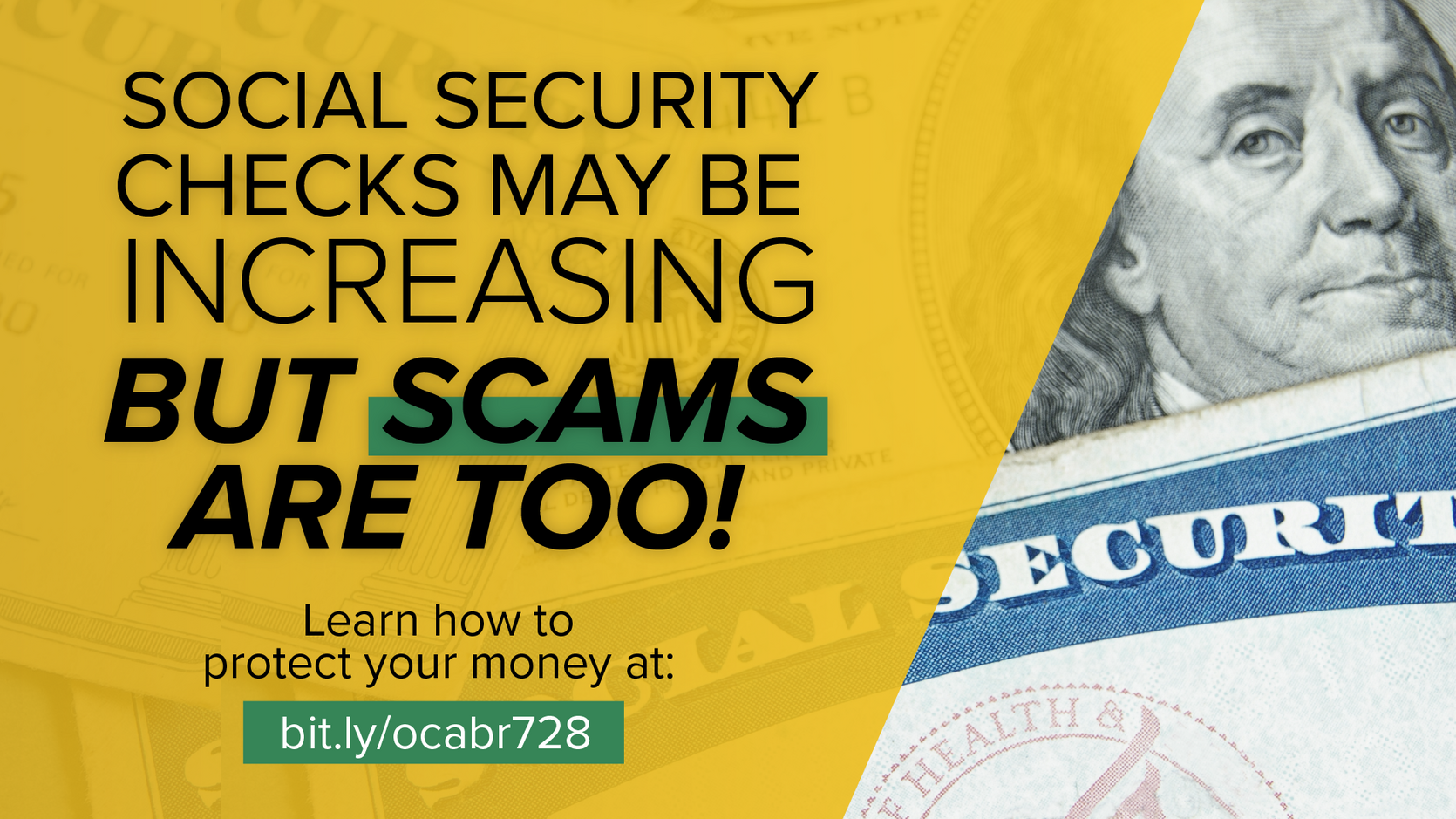- Office of Consumer Affairs and Business Regulation

With inflation picking away at our pockets, seniors and others who rely on Social Security will see a boost in pay beginning in early 2023. The welcome increase is set to be the biggest cost-of-living increase in decades, but it will also be an opportunity for scammers to take advantage of those consumers who depend on the benefits program. Here are some Social Security scams to watch out for and tips on how to keep yourself safe.
The Scams
The Social Security Administration will usually only call you if you request a call or if you have ongoing business with them. Any of the following behaviors during a call could indicate a scam:
- Threatening you. The Social Security Administration will not threaten you. Scammers will. They want to scare you into complying with their demands. Some of these threats may include suspending your SSN, which the Social Security Administration would not do. If there was a legitimate problem that the Social Security Administration needed to address, they would send you a letter and would not threaten arrest or legal action.
- Demanding payment. Legitimate calls from the Social Security Administration will never demand payment over the phone. Legitimate payments to Social Security can only be made through Pay.gov, Online Bill Pay, or with a physical check or money order through official social security offices.
- Emails and texts. The only texts and emails you should get from the Social Security Administration are messages that you have opted into receiving, informing you about services offered by the SSA, or for security purposes to confirm a login to a Social Security website. You should never receive a text or email asking you for personal information. No matter how official the communication appears, it is a scam if it asks you to call an unknown number or provide your info!
Tips
- Ignore it. If you receive a scam email, voicemail, or text, do not respond! Responding puts yourself further at risk for the scam. If you receive a scam phone call and identify it as such, hang up.
- Always ask for advice! If you are unsure whether a call is legitimate or if you should send someone money, ask people you trust to evaluate the situation. If it is a scam, a second pair of eyes should help you spot it easily.
- Report it. If you report a scam, you are helping people, like yourself, by holding scammers responsible.
You can report SSA scams at:
- https://oig.ssa.gov/report/
- Massachusetts Attorney General’s Office at 617-727-8400
- Online at ftc.gov
For more information about social security scams, please visit the SSA’s webpage regarding scams, https://www.ssa.gov/scam/.

